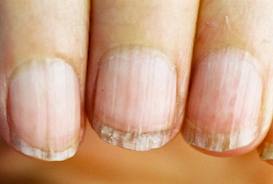Caring for an elderly persons fingernails.
I can’t stand the thought of eating food with my fingers and having dirty fingernails. However if you are elderly and have poor eyesight and stiff, painful arthritic fingers, caring for your nail becomes difficult if not impossible.
Long finger nails harbour dirt and germs and increase the risk of cuts and scratches. This in turn is not ideal if someone elderly is taking blood thinning medication because the scratches will bleed quite happily.
As we age our fingernails can thicken and become tough so soaking them help well in warm water will soften them and make them easier to cut. Using nail clippersor special heavy duty clippers
will make life easier if you are helping care for someone with thick, tough nails. I find a flexible soft toothbrush a useful addition to a nail brush and file the nails with an emery board.
When an elderly person has to spend time in hospital, sadly quite often their nails will not be cared for simply down to a lack of time. I find it useful to include nail care items in their wash bag so someone visiting may offer to help clean and tidy them up.


Hello Victoria and thank you so much for your useful comment. I did know about the link between Vitamin B12 and dementia but wasn’t aware of the impact a lack of it has on fingernails. I shall add this to the article. Thanks again, Caron.
Just looking at your article about Finger Nails. As a sufferer of Pernicious Anaemia (B12 Deficiency) finger nails with lines down/grooves is also an indication of B12 Deficiency which is very common as you get older as your stomach loses the ability to absorb B12 due to lower stomach secreting acids. I am a member of the B12d.org and extensive research has been done into B12 deficiency. I believe that if older people were given more frequent injections of B12 then it would significantly decrease dementia in our elderly. (B12 Deficiency can shrink the brain). http://www.b12d.org is an excellent website to have a look at.